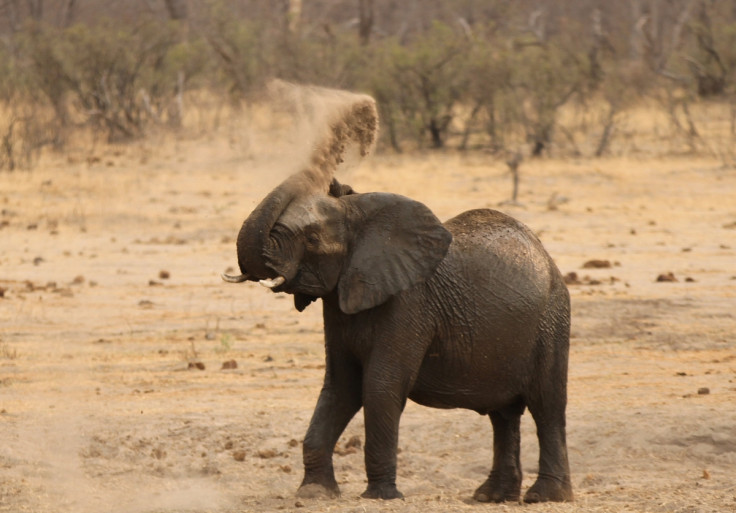Zimbabwe selling wild animals in bid to save remaining wildlife from drought

In an unusual ecological strategy, Zimbabwe is offering to sell off some of its wild animals and use the income to help save remaining wildlife struggling in a devastating drought. Few specific details of possible transactions, including costs and anticipated income, were released by Zimbabwe officials.
A statement said simply that the country intends to "destock its parks estates" by selling animals to "private wildlife reserves," CNN reported. Members of the public "with the capacity to acquire and manage wildlife" — and enough land to hold the animals — should get in touch to register an interest, said Zimbabwe's Parks and Wildlife Management Authority (ZimParks). It wasn't immediately known if anyone — or only Zibabweans — could purchase the animals.
Parties interested in obtaining the wildlife currently on Zimbabwe's reserves will have to provide information about the desired animals' future habitat, including the name, address and size of the property, ownership, "intended use for the acquired animals," and existing infrastructure such as fences, water availability, and "protection/law enforcement capacity and management," the statement said. Conservation groups will be watching to see if any animals appear destined for hunting concessions, CNN reported.
ZimParks spokeswoman Caroline Washaya-Moyo declined to reveal the number of animals for sale or whether they could be transported outside Zimbabwe. "We do not have a target," she told Reuters. "The number of animals depends on the bids we receive."
The government intends to use the money raised "to buy food and secure water facilities for distressed animals," said Environment, Water and Climate Minster Oppah Muchinguri-Kashiri. The sale would also help preserve grassland and water resources for the remaining animals.
Currently, some 54,000 of Zimbabwe's 80,000 elephants live in the western Hwange National Park, more than four times the number the park can sustain. Hwange drought conditions are "critical" and expected to get worse.
Zimbabwe's famous national parks occupy close to 13% of the country's land area. The region is currently facing a severe drought significantly affecting both animals and wildlife. According to UNICEF, 37% of households in Zimbabwe are hungry as the drought conditions have "decimated" livestock and crops.
Zimbabwean President Robert Mugabe declared a state of disaster earlier in 2016. In 2015 Zimbabwe sold dozens of elephants to China, a country that values the animals' tusks, in a bid to raise money for conservation efforts. The sale was slammed by wildlife protection organisations.
© Copyright IBTimes 2025. All rights reserved.






















